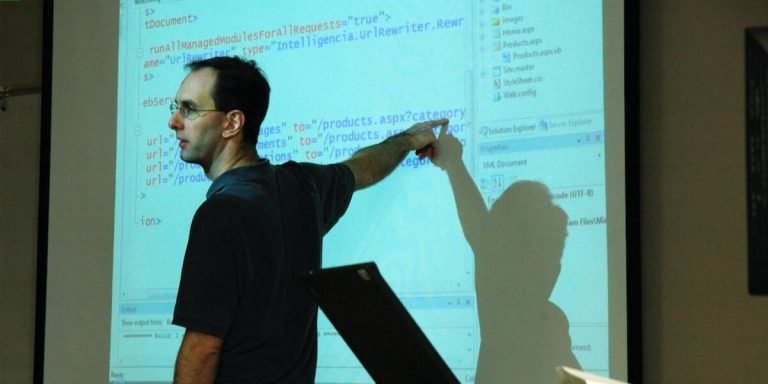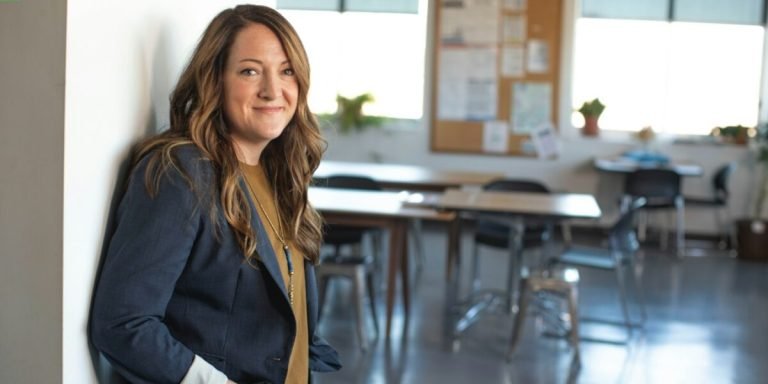PBS Media: A Gateway to Engaging Childhood Education
Educating a child is no small feat, but with tools like PBS Media at our disposal, the journey can be significantly more manageable and engaging. This platform provides an interactive environment for kids to learn while playing—an injection of fun into education that traditional methods might lack. Seen by many parents and educators as an effective gateway to stimulating childhood learning experiences, pbs media has paved the way in transforming educational landscapes.
From provision of vast resources suitable for different age groups to assistance in curriculum development—PBS Media indeed stands on its own merit when it comes introducing children to complex subjects through simple yet intriguing content. For parents looking out ways to keep their young ones engaged or educators striving towards innovative teaching methodologies; PBS Media promises support backed by years of expertise and research dedicated solely towards childhood education.
Did you know?
Did you know, according to a study by the University of Maryland, children who use PBS educational media demonstrated significant gains in their critical math skills?
Understanding the Role of PBS Media in Enhancing Educational Outcomes
PBS Media is a crucial player in integrating technology into education, particularly since the world faced major digital adaptation ever since 2020. This extensive platform sets itself apart by providing an array of diverse interactive materials that are not only engaging but tailor-made for various learning stages and styles. By offering quality educational content such as videos, games and activities centered on different academic concepts, it effectively aids both educators and parents in harnessing technology to boost teaching efficacy.
The role PBS media plays extends beyond being just an online resource pool. It has evolved over time as a potent tool designed to empower today’s digitally inclined learners while supporting their caregivers at home or instructors at school with resources tailored precisely towards accomplishing targeted scholastic outcomes. Leveraging this robust platform can bring insightful perspectives regarding children’s developmental needs while simultaneously transforming how knowledge is transferred across generations.
In practice what does leveraging PBS look like? When using these tools strategically, we see teachers weaving award-winning shows like “Sesame Street” or “Curious George”, available through PBS platforms into lesson plans igniting young minds’ curiosity about the world surrounding them all tied seamlessly together within an innovative tech-centric format! For parents too – introducing child-friendly programming from PBS forms part of healthy screen-time habits fostering constructive engagement rather than passive consumption.
How PBS Media Supports Curriculum Standards and Learning Objectives
PBS Media plays a crucial role in supporting curriculum standards and achieving learning objectives, especially when technology integration is becoming more prevalent in 2023. Geared towards facilitating an interactive educational experience for children, PBS media combines fun with education effectively.
The first stride that PBS Media takes to support the syllabus norms involves creating engaging content which adheres strictly to school curriculums. The task may seem overwhelming; however, PBS media achieves this impressively by merging entertainment and pedagogy. This strategy allows it to seamlessly meet the criteria set out by various state education departments.
Additionally, educators find great resourcefulness from teaching materials provided by PBS Media since they align directly with what students are expected to learn at specific grade levels. High-quality lesson plans along with resources like online activities or printable worksheets contribute substantially toward fulfilling explicit educational targets of learners across different age-brackets without making learning monotonous.
Incorporating real-world applications into their content makes them truly stand apart as kids understand better when theoretical concepts turn practical! For instance – if it’s about introducing ‘Addition’ concept for toddlers – instead of plainly showing numbers summing up on screen – how much enjoyable would it be if Muppet Elmo playfully adds two apples plus one apple while munching his way through!
Leveraging PBS Resources for Diverse Learning Styles and Needs
PBS Media is an invaluable tool in today’s educational landscape. It provides a wealth of resources that can be adeptly leveraged to address the diverse learning styles and special needs prevalent among young students.
One way PBS caters to different learning styles lies within their wide portfolio of content formats. From interactive games, online activities, and virtual workshops – there are tools available for visual learners who grasp information best through images; auditory learners who prefer listening; kinesthetic leaners who learn via movement or physical actions; as well logical-textual learners whose focus is on words and logic.
An often overlooked aspect of these strategies relates not just with offering varied material but also promoting inclusivity by catering to those children with identified special needs. For instance, closed-captioning supports hearing-impaired students while the dyslexic-friendly settings enhance readability for students with dyslexia.
Encompassing another level of diversity, PBS doesn’t stop at accommodating learning types alone but brilliantly addresses cultural variability too – a crucial factor in 2023! Programmes like “Molly Of Denali” highlight indigenous cultures whilst “Alma’s Way” introduces urban Latino life igniting conversations about social awareness among impressionable minds.
Collaborative Efforts Between Parents, Educators, and PBS Media
With the advent of technology, partnerships in education have been revolutionized. PBS Media has emerged as a remarkable player in this evolution, promoting technological integration within classroom settings and home-based learning environments alike. In 2023, we see an increasing trend where parents and educators are converging with such digital platforms to foster effective educational processes.
The key strength lies in collaboration – amongst parents, teachers and media bodies like PBS Media. This trinity forms a powerful alliance that is actively redefining traditional pedagogies across varying age groups among children. Parents who might be seeking ways to supplement their child’s academic growth can use resources from these media outlets effectively while educators utilize them for more engaging lesson planning or bolstering weak areas in students’ understanding.
The synergy between stakeholders majorly benefits personalized learning experiences for students. Recent trends post-pandemic have emphasized this approach. Trusted entities like PBS Media provide quality instructional content that considers learner diversity and aligns with current objectives, making learning an interactive journey rather than merely an instruction-led transfer of knowledge. It ensures intellectual development alongside emotional well-being, leading to the success of tomorrow’s young scholars.
Strategies for Parental Involvement Using PBS Platforms
As technology continues to shape the landscape of learning, it’s essential for parents and educators alike to effectively leverage resources like PBS media in 2023. Strategies such as co-watching digital content, engaging with children during viewing time and reinforcing lessons post-screening can significantly amplify the impact.
Start by selecting relevant programming together. PBS offers a plethora of educational television shows geared toward different age groups and academic subjects – from “Sesame Street” for preschoolers focusing on basic numeracy skills to “Nova” that appeals older kids exploring fields within science. By letting your child take part in this selection process, you not only encourage autonomy but also cultivate their interest towards certain topics.
Next step is active-co watching; instead of passively allowing children watch alone while doing chores or working alongside them is valuable too! Make sure you ask questions about what they’ve just viewed – inquire about plot developments or characters’ decisions – which helps reinforce critical thinking skills on topical issues presented throughout an episode.
Then comes ‘at-home extension’. Shows are great conversation starters but what if we added more interactive elements? Many PBS programs come accompanied by online games designed specifically around educational goals set forth each program’s respective curriculum team so why not try playing some these fun activities together?
Professional Development Opportunities for Teachers via PBS Media
As we set foot in the digital era, PBS Media has emerged as a trusted companion for both parents and educators. The convergence of education with technology is now made effortless with PBS media paving an accessible path to it.
Firstly, let’s focus on how teachers can leverage this platform. With resources like lesson plans, online activities and educational games crafted by experts available at your fingertip are truly transformative experiences that resonate beyond conventional teaching methods. They provide features such as interactive whiteboards or smart boards which facilitate engaging lessons making them more understandable for students.
Moreover, dedicated sections engineered towards professional development within their website encourage educators to improve upon and diversify their expertise. Teachers can participate in webinars to enhance their technological know-how or go through instructional video series that offer simple yet effective strategies applicable across various grades on different subjects.
These diverse tools do not only benefit the teachers but also create an open channel of communication between home and school learning environments enriching children’s education tremendously.
Consider implementing “PBS LearningMedia”, It collaborates directly with parents too! Parents have access to programs designed especially for early childhood development aiding cognitive skills ultimately preparing toddlers even before they commence formal schooling.
Lastly remember “Raising Readers”, so popular among preschoolers? This initiative assisted millions of young American kids enhancing language skills whilst instilling love for reading right from start!
Parents will find insightful tips provided here absolutely beneficial potentially improving relationship dynamics.
Integrating Technology with Early Childhood Education Through PBS
Distinctive strides have been undertaken to encapsulate modern technology within the realm of early childhood education. One such initiative is Public Broadcasting Service or PBS media, a renowned platform that has made notable contributions towards educational content for children. The evolution in teaching tactics through digital mediums like PBS brings forth an innovative perspective on combining traditional and contemporary learning methods.
PBS Media breaks down complex knowledge into bite-sized, engaging content specifically designed for youngsters’ comprehension capacity. It integrates seamless technology with interactive lessons forming the backbone of their broadcasted programs enhancing auditory and visual senses among kids rather creating monotonous classroom experiences.
In 2023, educators along with parents are able to leverage this wealth tool not just as entertainment but as mean to provide holistic development from an early age via virtual comfort zones – homes! Their programming aims at fostering critical thinking skills while providing informative yet fun-filled shows which helps retaining attention span much longer compared against conventional teachings methodologies.
For parents who seek support during these immersive phases of foundational education in kid’s life can highly benefit by integrating PBS services into daily routines. Not only does it save time managing resources outside home environment but also gives them greater control over child’s interactive sessions thereby monitoring what they see, learn & recall rather than leaving everything on institutional models making parental involvement passive.
To sum up; Technology integration In Education enabled by platforms like ‘PBS media’ acts as powerful facilitator actively supporting both parents and educators alike – driving force behind shaping dynamic global citizens right from kinder-garden levels itself!
Interactive Learning Tools Provided by PBS Kids
In the world of technology integration in education, PBS Kids emerges as a strong proponent. Offering a variety of interactive learning tools, it has enriched early childhood education tremendously.
The content provided under “PBS Media” is both engaging and educational. Interactive games that are designed to improve cognitive abilities such as memory improvement puzzles, problem-solving games or creativity triggering art projects can be found on their platform – all coated with an element of fun to keep children engaged.
Audio-visual lessons create immersive experiences for kids progressing through various academic subjects like mathematics and science while subtly incorporating key soft skills too. For instance, video episodes explain concepts via storytelling that could boost emotional intelligence besides feeding intellectual curiosity.
One should also definitely explore “Play & Learn Science” app which carries several exciting experiments for youngsters to learn elementary science outside traditional textbooks but within trusted guidance from PBS media – combining real-world exploration with digital gaming mechanics seamlessly!
Moreover, there’s access to eBooks featuring popular characters from TV shows which not only enhance reading proficiency but develop cultural sensitivity too owing diverse character backgrounds; this resource alone broadens horizons beyond academics literally at fingertips!
Evaluating the Impact of Digital Content on Child Development
In the digital era, observing a child interact with technology is no longer an unusual sight. In fact, integrating tech-based learning platforms like PBS media has become crucial in early childhood education. The impact of such digital content on child development can be evaluated from multiple perspectives.
Firstly, educational platforms like PBS provide age-appropriate and engaging content for children. This caters to their innate curiosity while keeping them productively occupied. Such resources foster cognitive skills by presenting complex concepts through simple narratives or interactive games.
Secondarily, these interfaces enable children to adapt to technological advancements intuitively at a young age hence preparing them for a future where proficiency in using technology will be commonplace requirement.
Conclusion
Harnessing the power of PBS Media can truly revolutionize early childhood education. These interactive tools not only make learning an enjoyable journey for children, but they also provide invaluable support to parents and educators as well. With so much potential in a single platform, it’s no wonder that pbs media is quickly becoming synonymous with engaging and effective instruction.
But remember, this is just the tip of the proverbial iceberg when it comes to ways you can enhance your child’s educational experience! We invite you to explore our website further for more guidance on educating youngsters. Whether you’re seeking resource recommendations or searching for tips from experienced educators—rest assured knowing we’ve got you covered.







